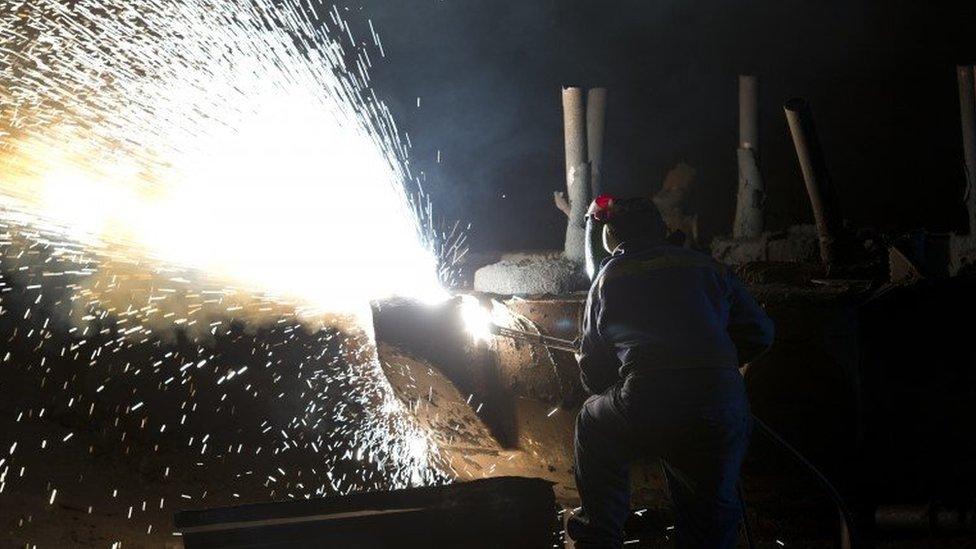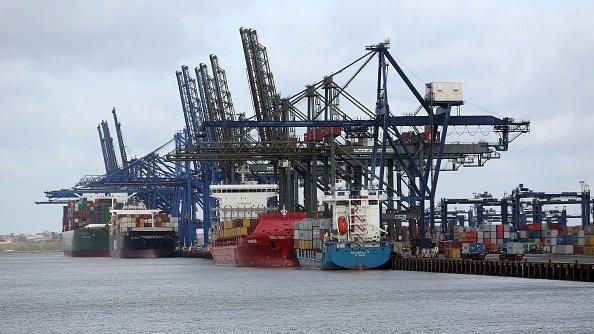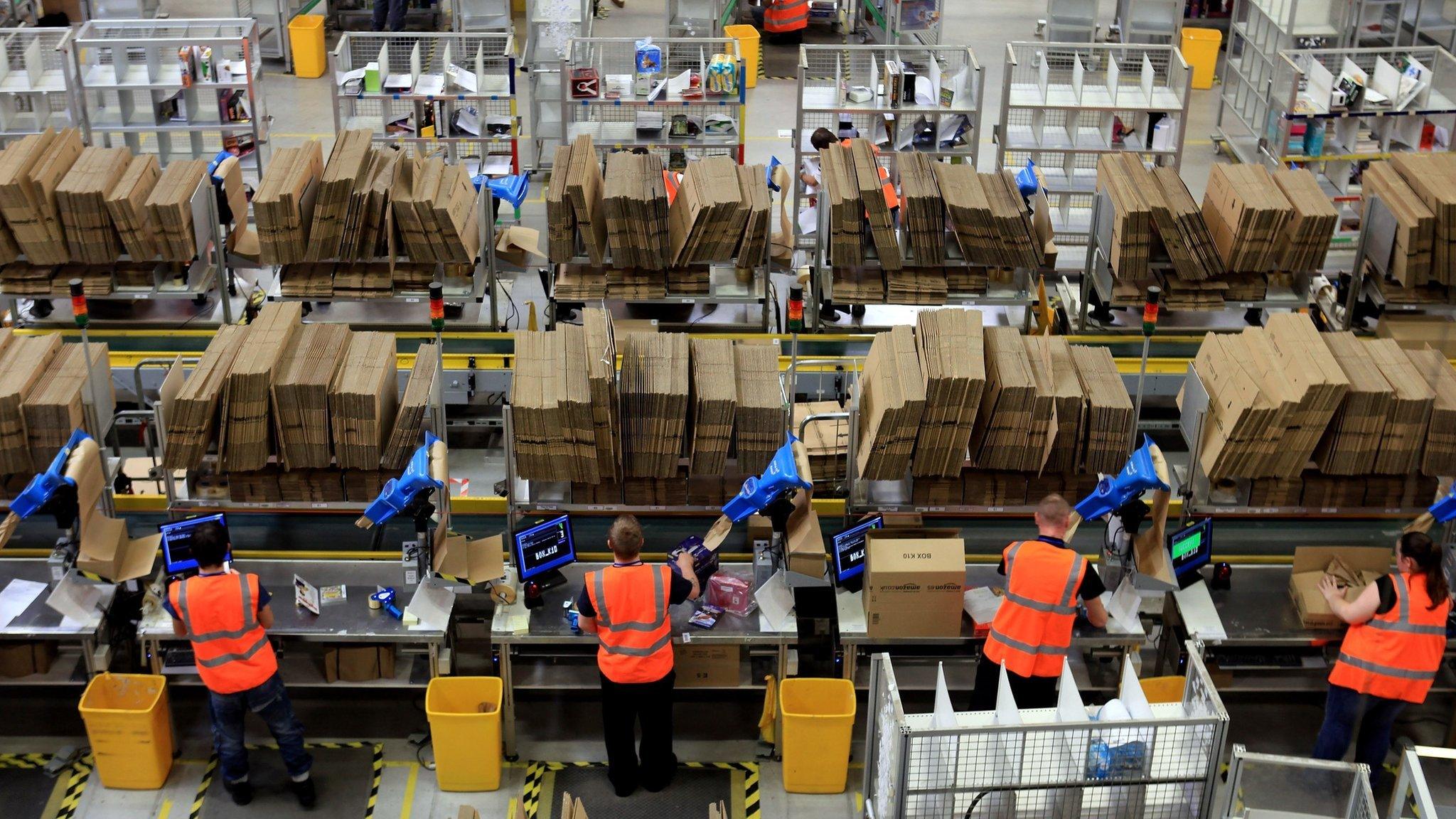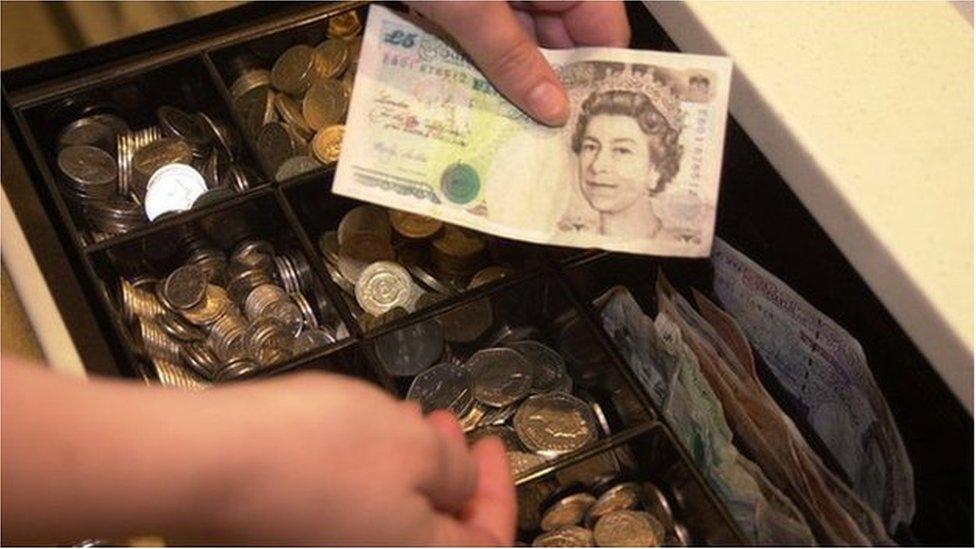UK industrial output fall prompts growth fears
- Published

The UK's industrial output fell 0.5% in February from a year earlier, the biggest decline since August 2013.
Office for National Statistics (ONS) figures, external also showed manufacturing output fell by 1.1% from January, and was down 1.8% from a year earlier.
The weaker-than-expected figures have raised fears over the performance of the UK economy.
Separate figures from the ONS, external showed that the UK's trade deficit in February was also worse than expected.
'Double whammy'
"The February trade and industrial production data provide a double whammy of very disappointing news for the UK economy that bodes ill for first-quarter growth prospects," said Howard Archer, chief UK economist at IHS Global Insight.
"It reinforces our belief that GDP growth will have been no better than 0.4% quarter-on-quarter in the first quarter, down from 0.6% quarter-on-quarter in the fourth quarter of 2015."
The National Institute of Economic and Social Research (NIESR) said its estimates of GDP suggested that output grew by 0.3% in the first three months of the year, the weakest rate of growth for the UK economy since the final quarter of 2012.
"The subdued growth in the first quarter of 2016 has been primarily driven by weakness in production industries, especially manufacturing," said NIESR researcher James Warren.
"The volume of industrial production is currently 10.7% below its pre-recession peak of the first quarter of 2008, while GDP has now surpassed its pre-recession peak by 7%."
'Drag on growth'
The ONS said that manufacturing output had decreased between January and February in 11 of the 13 manufacturing sub-sectors it covers.
The biggest decline came from the manufacture of transport equipment, which fell 2.9%.
"Today's data confirms the ongoing weakness across manufacturing with broad-based falls across more or less all the sub-sectors leading to a hefty month-on-month decline," said Lee Hopley, an economist at the manufacturers' organisation EEF.
"This points to a fairly dismal first quarter for industry that will again pose a drag on GDP growth."
A series of surveys released recently indicated that both the manufacturing and services sectors of the economy experienced subdued growth in March.
Steel impact
Poor performance in the steel sector was a major drag on production, the ONS figures show. The manufacture of basic iron and steel slid by 37.7% in February 2016, compared with the same time last year, and this contributed to a 0.4% fall in total UK production output.
"Chancellor George Osborne will have been expecting a slight drop in today's manufacturing production figures, especially amid the furore of steel giant Tata signalling their intention to close their Port Talbot plant, but the severity of the fall will have been surprising," said Dennis de Jong, managing director at UFX.com.
"Global steel prices isn't the only issue hurting manufacturing production. The rapidly approaching Brexit referendum is on a knife edge and, with the outcome uncertain, it may cause orders to dry up until the votes are counted."

Trade gap widens
The trade figures from the ONS showed the UK's goods trade deficit was £12bn in February. This was narrower than January's upwardly revised figure of £12.2bn but worse than analysts' forecasts of about £10.2bn.
The ONS said the total trade deficit figure for January was now £1.8bn bigger than previously estimated, because of a big revision in imports of non-EU goods, specifically gold.
Meanwhile Britain's trade gap with the EU widened to a record level, at £8.6bn.
"The latest figures are disappointing," said David Kern, chief economist at the British Chamber of Commerce.
"Coming after the record current account deficit, these figures reinforce our view that much more is needed to boost our export performance."
The total trade deficit - in goods and services - was £4.8bn for February, while January's figure was revised higher to £5.2bn.
- Published7 April 2016

- Published5 April 2016

- Published31 March 2016
